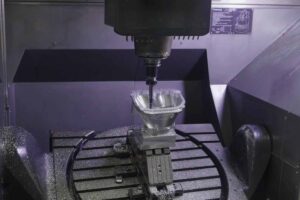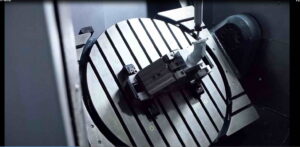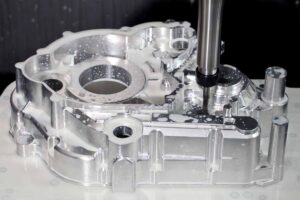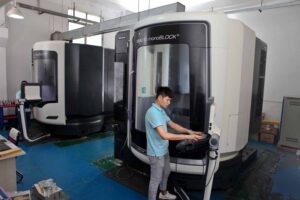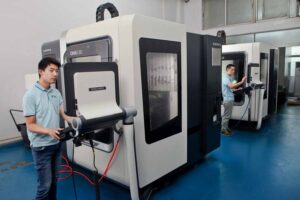Hoy vamos a explorar la influencia de los materiales en el mecanizado CNC. El mecanizado CNC se ve influido significativamente por el tipo de material que se mecaniza, y cada material presenta su propio conjunto de retos y consideraciones. He aquí algunas influencias y retos clave asociados a los distintos materiales.
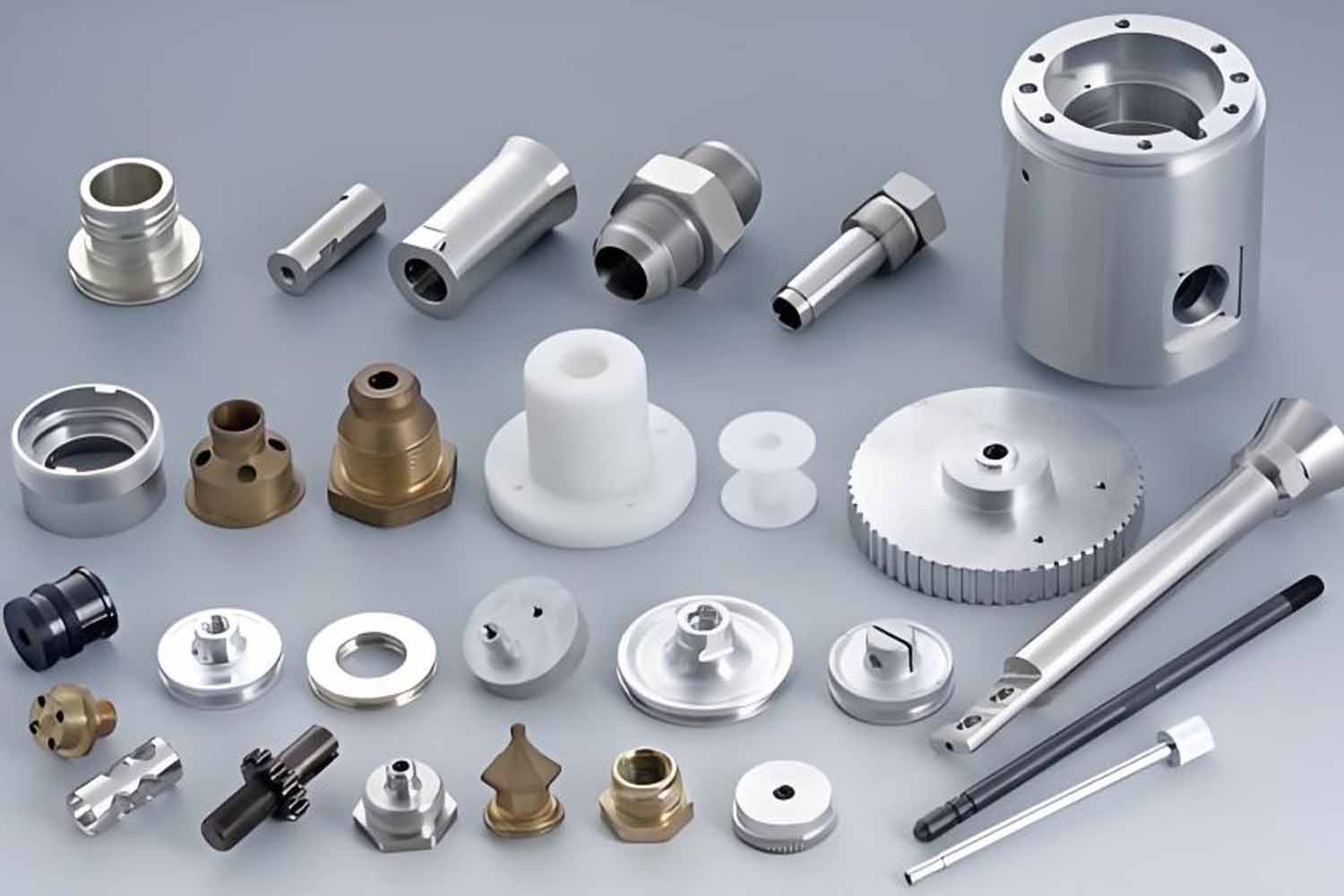
Influencia del material en el mecanizado CNC
Maquinabilidad: Algunos materiales son más fáciles de mecanizar que otros. Por ejemplo, el aluminio suele ser más fácil de mecanizar que el acero inoxidable debido a su naturaleza más blanda.
Desgaste de herramientas: Los materiales más duros (como el titanio y determinados aceros) pueden provocar un mayor desgaste de la herramienta, lo que requiere cambios más frecuentes de la misma y puede aumentar los costes.
Velocidad de corte y avance: Los distintos materiales requieren diferentes velocidades de corte y avance. Por ejemplo, los materiales más blandos pueden mecanizarse a velocidades más altas, mientras que los materiales más duros pueden requerir velocidades más lentas para evitar dañar las herramientas.
Conductividad térmica: Los materiales con baja conductividad térmica (como algunos plásticos) pueden retener el calor durante el mecanizado, lo que puede provocar su fusión o deformación. Puede ser necesario ajustar los métodos de enfriamiento en consecuencia.
Acabado superficial: El tipo de material afecta al acabado superficial alcanzable. Algunos materiales pueden requerir procesos de acabado adicionales para lograr la calidad deseada.
Estabilidad dimensional: Materiales como la madera y ciertos plásticos pueden dilatarse o contraerse con los cambios de temperatura y humedad, afectando a la precisión de la pieza mecanizada.
Retos del mecanizado CNC por material
Dureza del material: Los materiales duros pueden ser difíciles de mecanizar, ya que requieren herramientas o técnicas especializadas (por ejemplo, mecanizado de alta velocidad, revestimientos).
Fragilidad: Los materiales quebradizos (como ciertas cerámicas) pueden fracturarse durante el mecanizado, lo que requiere una manipulación y unas estrategias de mecanizado cuidadosas.
Formación de virutas: Los distintos materiales producen diferentes tipos de viruta (por ejemplo, continua frente a segmentada), lo que puede afectar al proceso de mecanizado y a la vida útil de la herramienta.
Coste: Algunos materiales (como el titanio y ciertas aleaciones) son más caros y pueden requerir procesos de mecanizado más costosos, lo que repercute en los presupuestos generales de los proyectos.
Consideraciones medioambientales: El mecanizado de ciertos materiales puede producir polvos o humos peligrosos (por ejemplo, ciertos plásticos y materiales compuestos), que requieren medidas de seguridad adecuadas.
Complejidad del diseño: Algunos materiales pueden no ser adecuados para diseños intrincados debido a sus propiedades físicas, lo que puede limitar las posibilidades de diseño.
Conclusión
Comprender la influencia de las propiedades de los materiales en el mecanizado CNC es crucial para optimizar los procesos, garantizar la calidad y gestionar los costes. Seleccionando los materiales y las estrategias de mecanizado adecuados, los fabricantes pueden superar estos retos y lograr resultados de mecanizado eficientes y eficaces. Si tiene en mente un material o proyecto específico, puedo ofrecerle información más personalizada.
Avances recientes en la modelización de procesos de mecanizado de metales


